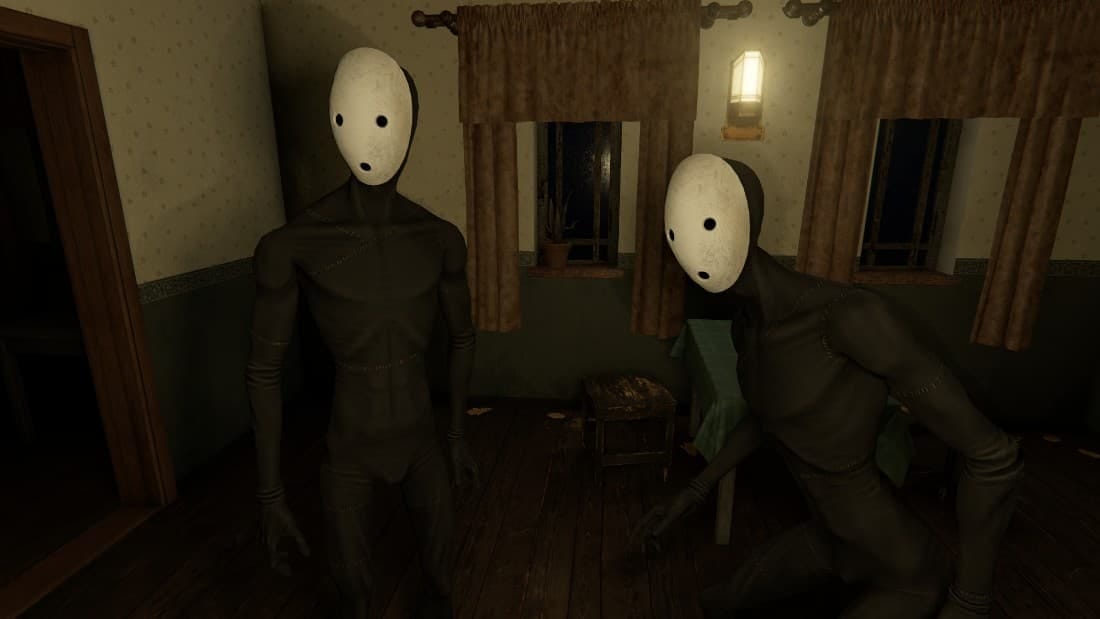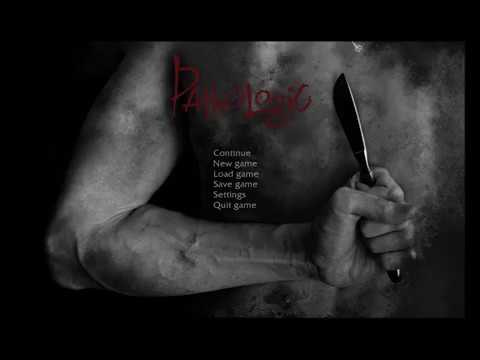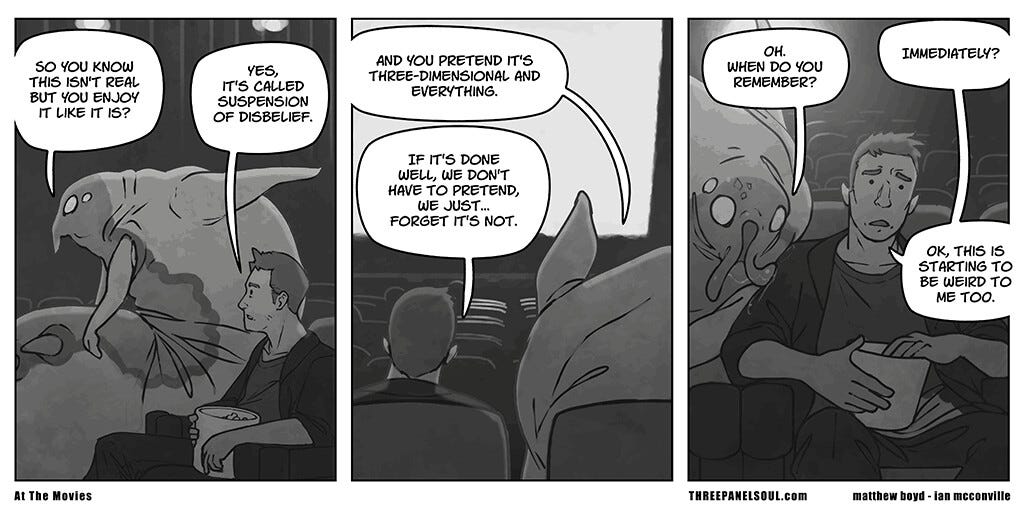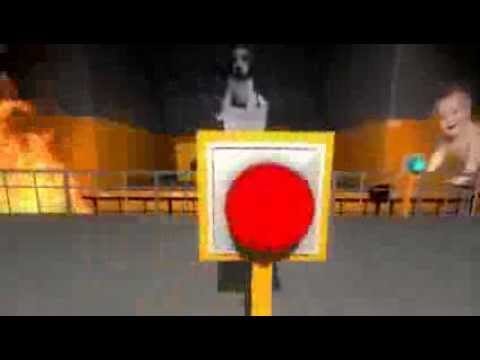The Stanley Parable and Pathologic
they have a lot in common, who could have guessed
I thought I’d finally play all the way through The Stanley Parable.
I played the HL2 mod a long time ago:
The HL2 mod was very good. It was maybe 30 minutes long, a branching path game with a sassy narrator, where no matter what branch you went down, you’d lose. The branches are fairly well written and interesting, charmingly narrated, and mostly about the illusion of choice in (non-simulation) games: no matter what you do with the game, either the developer had to prearrange the result or you’ve broken the game and the result is unplayable nonsense.
Okay! Fine! A good little story.
What does the standalone $15 game add?
There’s maybe another hour of content added, so, it triples the length of the original game, adds more branches and more easter eggs, polishes the whole deal, and that’s what’s new in The Stanley Parable.
I was kind of over it? I feel like when the original Stanley Parable came out metanarrative was a lot more fresh and new feeling, and now it’s just starting to feel navel gazey. Marvel is engaging in metanerrative fuckery, it’s just not cool anymore.
But, uh, if you haven’t played The Stanley Parable, the standalone game is a pretty definitive way to engage with it, and it can be finished in its entirety in about 2 hours. Or (because the game is pretty devoid of any actual game mechanics) you could save yourself the money and just watch someone do a playthrough on your behalf.
Okay, let’s talk about Pathologic for a second. Pathologic has become one of my favorite games in the category of games that I refuse to play because they suck, but will happily read about endlessly because they’re fascinating.
(In case you’re wondering, that category, for me, right now, is largely occupied by Pathologic, Android: Netrunner, Dwarf Fortress, and Eve Online).
14 years ago, an enterprising young writer named Quentin Smith wrote Butchering Pathologic, one of my favorite-ever pieces of writing on Video Games.
man, that guy was a good writer, I wonder if he went on to do anything else cool
… nope? Nothing? Okay.
He wasn’t even the only person to put together an enormous thinkpiece on Pathologic. If you’ve got hours and hours and hours to devote to the topic, here’s hbomberguy.
Pathologic is Genius, And Here's Why
is that not enough 2-hour-long-thinkpiece-about-grim-Russian-video-games for you?
oh, don’t worry, there’s more
Pathologic Analysis; Themes of a Dying Classic // Анализ Мор.Утопии; Темы Умирающей Классики
Anyways: I love video essays, so I was all aboard to watch people talk about this thing for hours. Looks miserable to play though.
What does this have to do with The Stanley Parable?
Well, one of the major themes of both is that thing from earlier: examining the illusion of choice in video games. This only reveals itself if you’re willing to play through Pathologic’s miserable 40-hour-long campaign three entire times, which basically nobody was willing to do (not even Quinns!).
Pathologic’s happy to change the rules again and again about what the game’s story actually is. Is it a grim tale of a steppe town being wiped off of the map by disease and hubris? Is it the body and meat and blood of a bull representing the Earth that we live on, infected by deep wounds and dying thanks to over-extraction of resources and utopian human ideals? Is it a theatre production, being told again and again with myriad variations as you replay it? Is it nothing more than a game being played by two children? Is it all of those things at the same time?
At the very final moments of the final and most difficult ending to the game, the developers drop all pretense itself and directly address you, the player, explaining that the game is just a game, thanks for playing. All of the layers of framing intended to take you one step away from the story - the “theatre”, the “it was just kids” ending - they’re there to distract you from the fact that the game itself is just another layer of framing of the story, and at the very core of it all is a simple conversation between you and the developers where they’re writing a story to try to entertain you and you’re willfully engaging with it because you want to be entertained.
Anyways, sometimes stories will admit that they’re just stories as a “whoa” moment, explore what it means to be a story, get really down the hole of metanarrative (oh, hey there Homestuck), which is very cool the first few times you encounter it… but also seems to get less powerful the more times it happens, the more you turn the various ideas around in your head.
edit:
oh, oh, there’s a joke in Stanley Parable that might as well be ABOUT Pathologic, I forgot to mention that.
(STANLEY PARABLE SPOILERS IF YOU CLICK):
The spoiler-free tl;dr is “if you play a deeply unpleasant mini-game for a very long time, you get a special ‘art game’ ending”, and the reason I’m willing to spoil that with a wiki is that obviously nobody should actually do that.
I’m not sure if I have anything useful to say about that. It feels more like lamp-shading than the Stanley Parable authors actually making a concrete point, to me, but it is pretty funny.









